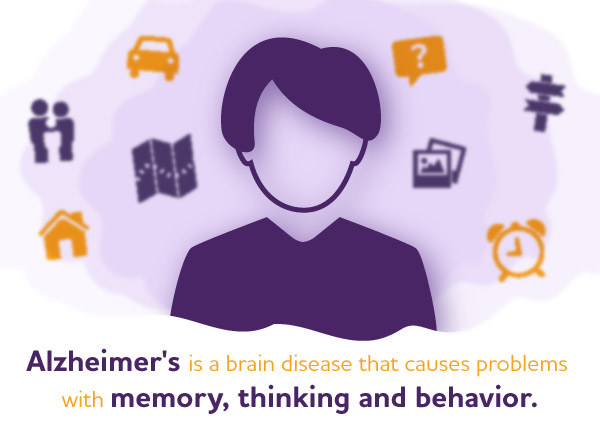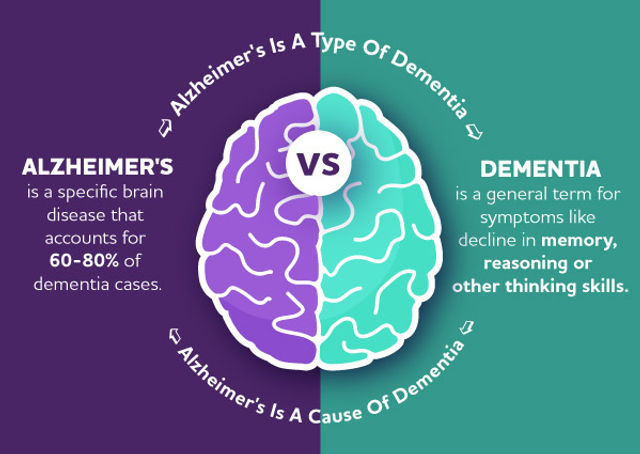
There are four major types of Alzheimer’s disease. Each subtype is associated with a unique set of symptoms. This information is helpful to those seeking a diagnosis and treatment options. Although these diseases are often treated the same way, the different subtypes have different characteristics. Here’s what to expect when you’re diagnosed with Alzheimer’s disease. You can find the right type of care for your loved one by following these steps.
First, learn what you can expect from each one. The early-onset type occurs in younger people, while the late-onset type is usually diagnosed once you’ve reached your mid-sixties. Both types are characterized by memory loss and other cognitive difficulties, but the symptoms may be mild at first. Over time, the symptoms can become so severe that it’s difficult to maintain a conversation or do day-to-day tasks. For an accurate diagnosis, your doctor will conduct a comprehensive neurological exam.
Typically, the onset of Alzheimer’s begins in the mid or late thirties. It may start with mild memory loss and progress to a loss of the ability to respond to the environment. The disease affects the parts of the brain that control memory and thinking. As the disease progresses, symptoms can become severe, making independent living difficult. Young people have a lower risk of developing Alzheimer’s disease. But after age 65, the number of people with the condition doubles every five years.
Symptoms vary from person to person, but it is important to recognize common symptoms. The illness can cause a person to become lost and have difficulty recognizing familiar faces or places. They may not know the date or time. And sometimes they put things in strange places or forget where they put them. It is very important to know what to expect when you are diagnosed with Alzheimer’s disease. Once you’ve been diagnosed, you can start taking steps to improve your quality of life.
When diagnosing Alzheimer’s disease, it is important to understand the symptoms. Some form of memory loss is very common, but it’s important to be aware of your symptoms. Symptoms can range from mild to severe. You may have trouble holding a conversation or performing daily tasks. If you notice any of these signs, please visit https://foxsportswausau.com/

for more information on symptoms. If you experience any of these symptoms, you should contact your doctor immediately.
Symptoms of Alzheimer’s disease can vary by age and type. The early onset type usually affects people under the age of 65 years and is often diagnosed before the symptoms appear. The later forms of Alzheimer’s disease occur after the patient reaches the age of 65. Initially, there is no specific cause of Alzheimer’s disease, but it can be a symptom of another disorder. It is important to understand what causes the disease so that you can treat it appropriately.
In general, the two types of Alzheimer’s disease can be categorized by severity. The early onset type affects people under the age of 65 and reflects the type of onset. The late onset type occurs after the age of 65 and affects the person’s ability to remember daily tasks. While both types of Alzheimer’s disease cause memory loss, no specific cause has been identified to date. However, the damage to the nerves is a major factor in the development of the disease.
Symptoms of Alzheimer’s disease are different in each type. Depending on the type of Alzheimer’s disease, a person may be suffering from the early or the late onset type. If a person is diagnosed with early onset Alzheimer’s disease, they are at a higher risk than those with late onset. Both types of Alzheimer’s are caused by the same cause. When a patient’s symptoms progress, their brains may become swollen, and the symptoms can become harder to manage.
Researchers believe that both types of Alzheimer’s disease are related to abnormal tangles of tau protein inside the brain. The tangles are a cause of the decline of brain cells. These tangles are believed to be responsible for the early-onset type of Alzheimer’s disease. Symptoms of both types of Alzheimer’s disease vary greatly from one another. If you have a family history of the disease, it may be beneficial to consume antioxidants and eat plenty of dark-colored fruits and vegetables.